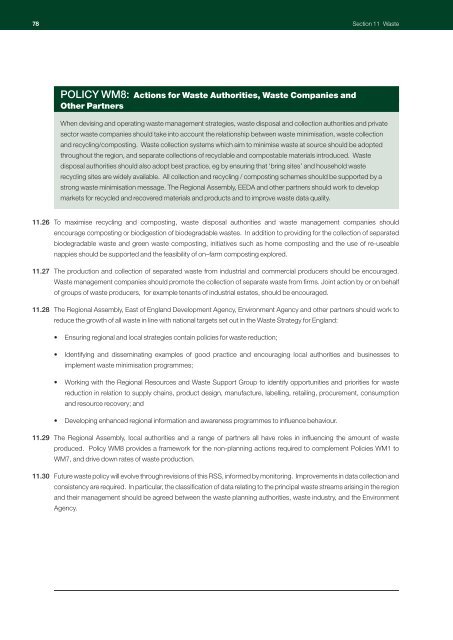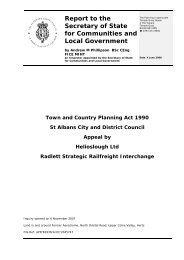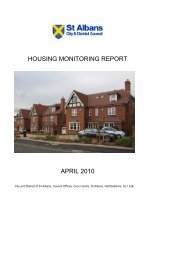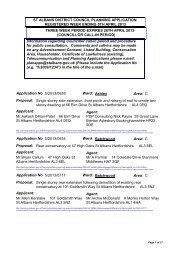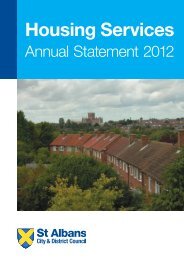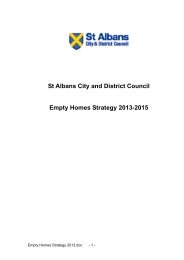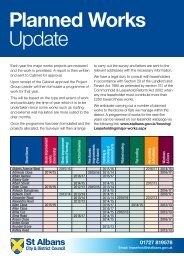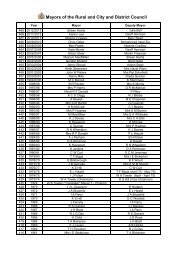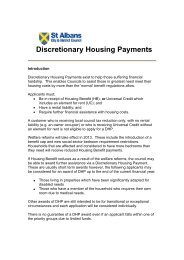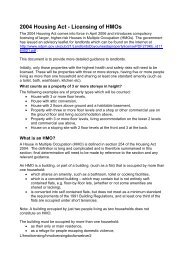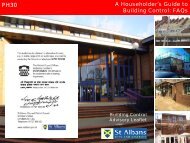RSS East Of England Plan - Broads Authority
RSS East Of England Plan - Broads Authority
RSS East Of England Plan - Broads Authority
You also want an ePaper? Increase the reach of your titles
YUMPU automatically turns print PDFs into web optimized ePapers that Google loves.
78<br />
Section 11 Waste<br />
POLICY WM8: Actions for Waste Authorities, Waste Companies and<br />
Other Partners<br />
When devising and operating waste management strategies, waste disposal and collection authorities and private<br />
sector waste companies should take into account the relationship between waste minimisation, waste collection<br />
and recycling/composting. Waste collection systems which aim to minimise waste at source should be adopted<br />
throughout the region, and separate collections of recyclable and compostable materials introduced. Waste<br />
disposal authorities should also adopt best practice, eg by ensuring that ‘bring sites’ and household waste<br />
recycling sites are widely available. All collection and recycling / composting schemes should be supported by a<br />
strong waste minimisation message. The Regional Assembly, EEDA and other partners should work to develop<br />
markets for recycled and recovered materials and products and to improve waste data quality.<br />
11.26 To maximise recycling and composting, waste disposal authorities and waste management companies should<br />
encourage composting or biodigestion of biodegradable wastes. In addition to providing for the collection of separated<br />
biodegradable waste and green waste composting, initiatives such as home composting and the use of re-useable<br />
nappies should be supported and the feasibility of on–farm composting explored.<br />
11.27 The production and collection of separated waste from industrial and commercial producers should be encouraged.<br />
Waste management companies should promote the collection of separate waste from firms. Joint action by or on behalf<br />
of groups of waste producers, for example tenants of industrial estates, should be encouraged.<br />
11.28 The Regional Assembly, <strong>East</strong> of <strong>England</strong> Development Agency, Environment Agency and other partners should work to<br />
reduce the growth of all waste in line with national targets set out in the Waste Strategy for <strong>England</strong>:<br />
• Ensuring regional and local strategies contain policies for waste reduction;<br />
• Identifying and disseminating examples of good practice and encouraging local authorities and businesses to<br />
implement waste minimisation programmes;<br />
• Working with the Regional Resources and Waste Support Group to identify opportunities and priorities for waste<br />
reduction in relation to supply chains, product design, manufacture, labelling, retailing, procurement, consumption<br />
and resource recovery; and<br />
• Developing enhanced regional information and awareness programmes to influence behaviour.<br />
11.29 The Regional Assembly, local authorities and a range of partners all have roles in influencing the amount of waste<br />
produced. Policy WM8 provides a framework for the non-planning actions required to complement Policies WM1 to<br />
WM7, and drive down rates of waste production.<br />
11.30 Future waste policy will evolve through revisions of this <strong>RSS</strong>, informed by monitoring. Improvements in data collection and<br />
consistency are required. In particular, the classification of data relating to the principal waste streams arising in the region<br />
and their management should be agreed between the waste planning authorities, waste industry, and the Environment<br />
Agency.


